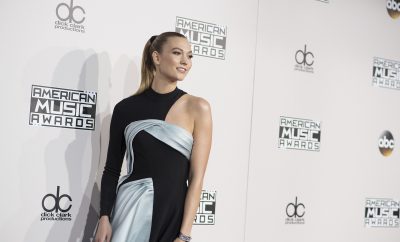 Image courtesy of [Daniel Ogren via Flickr]
Image courtesy of [Daniel Ogren via Flickr]
Entertainment
J.K. Rowling Sparks Angry Reaction with History of North American Magic
Last year, J.K. Rowling relaunched her Harry Potter-themed website, Pottermore, which offers fans the opportunity to explore the stories firsthand by going through the sorting ceremony and purchasing a wand. Rowling has also used Pottermore as a platform to release more information about her magical world through several short stories. Her most recent series of writings cover the history of magic in the United States, as an introduction to the upcoming “Fantastic Beasts and Where to Find Them.”
But the first story in a series which could have been harmless fictional history lessons has resulted in backlash from some in the Native American community.
The piece, covering the 14th to 17th centuries, talks about magical humans within Native American tribes and how, depending on the tribe, these witches and wizards were either trusted or feared:
In the Native American community, some witches and wizards were accepted and even lauded within their tribes, gaining reputations for healing as medicine men, or outstanding hunters. However, others were stigmatised for their beliefs, often on the basis that they were possessed by malevolent spirits.
She also talks about the Native American “skin walkers” who, in the world of Harry Potter, are animagi. Members of the Native American community took to Twitter to protest Rowling’s generalizations of their culture.
It’s not “your” world. It’s our (real) Native world. And skin walker stories have context, roots, and reality. https://t.co/mRZD0M1UCf
— Dr. Adrienne Keene (@NativeApprops) March 8, 2016
We’re saying that there is problem when non-natives continue to use outdated & racist stereotypes as the basis for their native characters
— Johnnie Jae (@johnniejae) March 9, 2016
@jk_rowling you are not entitled to our history, culture, stories. They are not yours to re-invent, re-define, re-imagine, or to profit from
— A Tribe Called Geek (@tribecalledgeek) March 8, 2016
You must outta your mind if you think we should sit idly while a renown white author uses us as props in her fictional work.
— Native Beauty (@nativebeauties) March 8, 2016
Rowling has seemingly not responded to the criticisms, other than to explain in further detail what skin walkers are. Dr. Adrienne Keene, one of the outraged individuals who used Twitter as a sounding board, expanded on her objections to the story on her blog, Native Appropriations. She talks about how Native Americans are so often lumped together and marginalized, and sometimes equivocated with their spiritual stories. Dr. Keene said:
But we’re not magical creatures, we’re contemporary peoples who are still here, and still practice our spiritual traditions, traditions that are not akin to a completely imaginary wizarding world (as badass as that wizarding world is).
Is the backlash justified? It is understandable that any people who have had their culture slowly stripped away by colonization would take offense to a descendant of those colonizers whitewashing their history. However, in the case of these short stories, cultural appropriation might be too bold of an accusation. We’ll have to see how the controversy plays out.








Comments